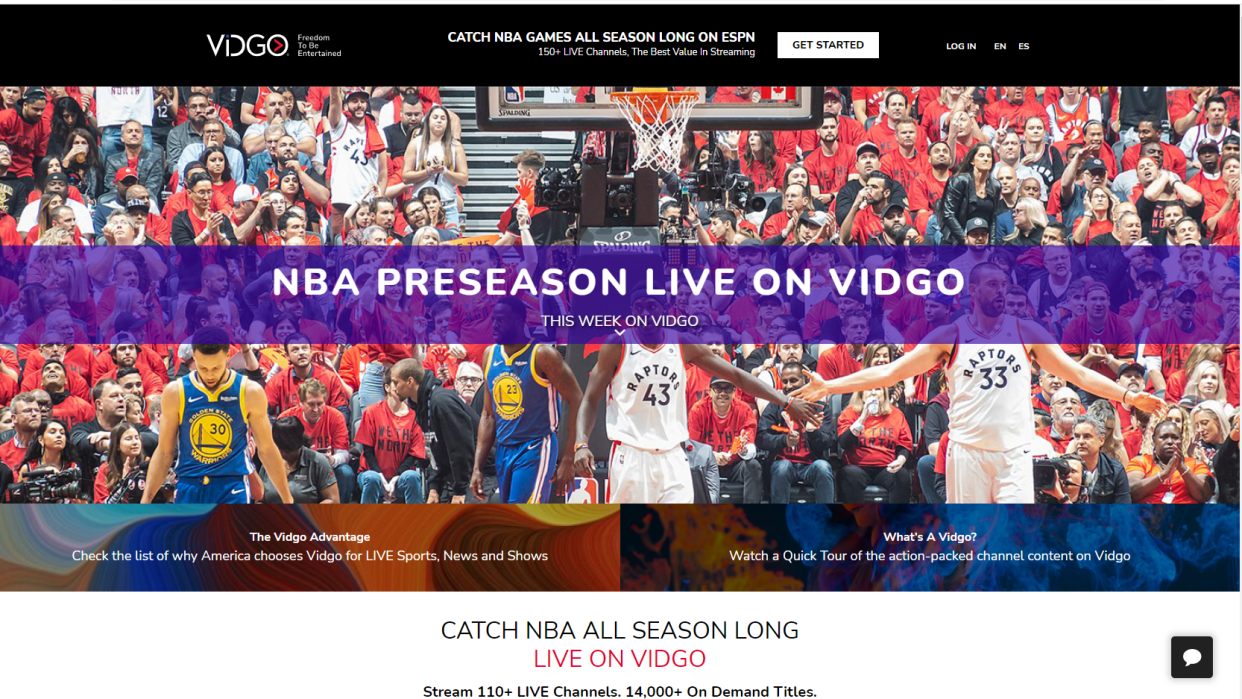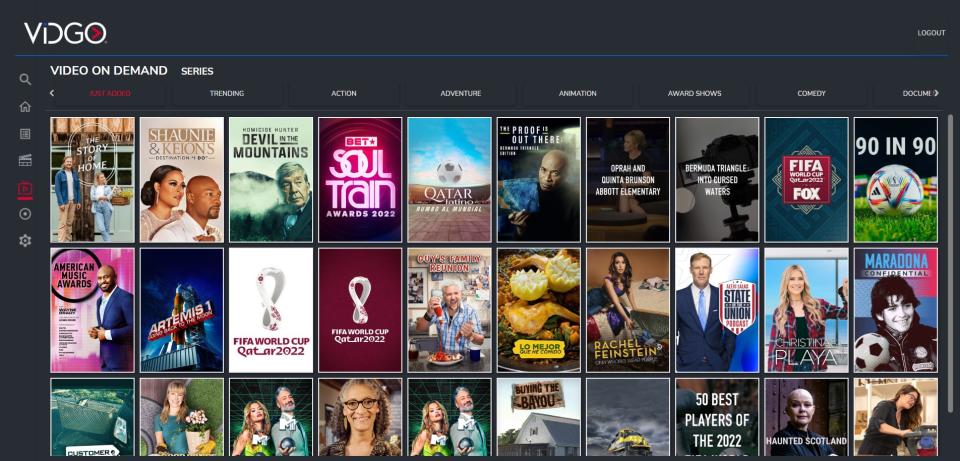Meet Vidgo, the Little Streamer That Believes It Can Win Over Middle America

There’s no shortage of niche streamers, ranging from Broadway (BroadwayHD), horror movies (Shudder) and anime (Crunchyroll, Retro Crush). And then theres’s Vidgo, the smallest of the virtual multichannel video programming distributors. It has fewer than 100,000 subscribers, but it has ambitions to cater to the real mainstream: Middle America.
Vidgo is a bundle of TV channels, some of which are familiar (ESPN, Fox News) and others that cater to more specific tastes: college sports (Big Ten and SEC networks), NASCAR (Motortrend, MavTV), westerns (INSP), faith (BYUtv), family (upTV), and rodeos (The Cowboy Channel). Vidgo also has a large presence in the Hispanic and bilingual spaces. As a matter of fact, the Spanish-language package launched first in October 2018, more than a year ahead of its English-language channels in December 2019.
More from IndieWire
How Sony's PlayStation Could Backdoor Its Way Into the Streaming Wars
New Movies: Release Calendar for April 14, Plus Where to Watch the Latest Films
Vidgo’s much-larger competitors include YouTube TV (100 channels for $72.99) and Fubo ($74.99 for 150+ channels). At $69.99 for 110 channels and $84.99 for 150 channels, Vidgo is not entirely the budget alternative; in fact, Vidgo just raised its rates. “Everyone” is doing the same, CEO Derek Mattsson told IndieWire, because the industry screwed up programming prices while his service was just getting off the ground. And it’s only gotten worse since then.
If you’ve never heard of Vidgo, maybe it’s not for you — congrats, you may be a coastal elite. Or perhaps it’s because Vidgo went into stealth mode last year. A 25-year veteran of cable TV, Mattsson said he stopped all Vidgo marketing for eight months while rebuilding its tech — kind of the same reason “Max” took so long. Vidgo relaunched in September 2022 with what he described as a three-part plan: Get to 1 million subscribers, “steal a lot of market share” from rivals, and reach profitability.
“We are priced competitively, we have a competitive product — but our operating costs are much lower than [Fubo’s],” Mattsson said. “I can get much more profitable faster than they can.”
Last July, YouTube TV announced that it had more than 5 million subscribers. Fubo, which ended 2022 with 1.865 million global paid subs, has not yet turned a profit. (It is targeting 2025, a spokesperson told IndieWire.) Elusive earnings are not uncommon in the tech space, but Mattsson says if Vidgo had even Fubo numbers, they’d have “big-time” cash flow.

Courtesy of Vidgo
For now, Vidgo needs (a lot) more subscribers, which means it needs more awareness. Raising the rates did raise media attention, but that tactic may not be the greatest single pathway to going 10x on a subscriber count. Mattsson said it had to be done.
“The entire streaming model right now is broken,” he told us via Zoom. “The programmers are charging much more than their distributors can pay. We’re trying to pass those costs along to consumers, but even with price increases, no one is making money.”
Mattsson, who spoke to us from his Las Vegas hotel room during a break at the 2023 National Association of Broadcasters conference, sees “a year of shakeups” for the streaming industry, “where we have to find gravity and the laws and physics and the economic model works for all the players.” That science includes price hikes just before the point of “irritating the consumer.” And programmers, y’all “need to bring the cost down.”
“In order to get ESPN, [Disney makes] you carry all of their other channels,” Mattsson griped. It’s similar on the Warner Bros. Discovery side: “You can’t have TNT without CNN.”
And surely, Mattsson’s clientele does not want CNN. Politics aside, they essentially want what we all want, Mattsson said: “Eight channels.” We all may not want the same eight, but that does sound about right. And per Mattsson, we want to pay $30 per month for those, not $150. “In any industry, the consumer wins in the end,” Mattsson said.
Maybe? But we’ll point out that you’re in Vegas, Derek — it’s the house that always wins in the end.
Best of IndieWire
Sign up for Indiewire's Newsletter. For the latest news, follow us on Facebook, Twitter, and Instagram.

